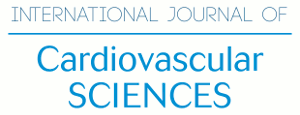Abstract
Background:
Uncontrolled blood pressure has been associated with poor adherence to drug treatment.
Objectives:
To assess blood pressure control in hypertensive patients attending primary health centers after implementation of a pharmaceutical follow-up program in a city of the north of Brazil.
Methods:
Observational, cross sectional, descriptive study with 163 hypertensive patients attending public primary health care centers – one located on the riverside and one in the urban area of the city of Santarem, western Pará, Brazil. Adherence to the anti-hypertensive treatment was assessed using the eight-item Morisky test. Pharmacotherapy follow-up (Dader method) of patients with uncontrolled hypertension and non-adherent to anti-hypertensive treatment was performed. Results of the normality test showed that the data did not follow a normal distribution. Continuous variables were then compared using the Wilcoxon signed-rank test, and categorical variables by the likelihood ratio and the McNemar tests. Statistical significance was set at 5%.
Results:
Of the total sample, 94.5% were not adherent to anti-hypertensive drug therapy and 77.2% had uncontrolled hypertension. Adherence rate was higher in men than women (p=0.006). Pharmacotherapy follow-up improved blood pressure levels, particularly systolic blood pressure (p<0.001).
Conclusion:
An individualized pharmacotherapeutic follow-up, considering regional and cultural specificities, can contribute to the treatment of hypertensin in the primary care.
Keywords:
Hypertension; Risk Factors; Patient Care Management; Medication Adherence; Epidemiology; Urban Area; Morbidity and Mortality

 Thumbnail
Thumbnail
